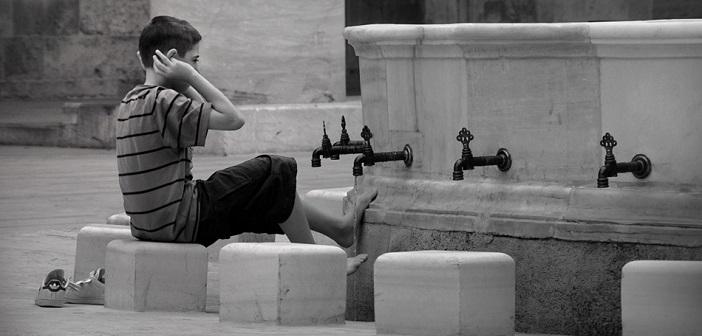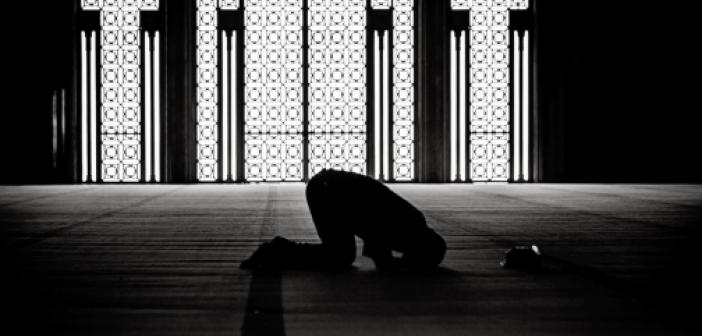
The Story of Prophet Jonah
What is the story of prophet jonah? Who is the prophet jonah?
The Prophet who Overcame Darkness through an Ecstatic Repentance and Prayer JONAH -peace be upon him-
Jonah (as) has a chapter in the Qur’an named after him (Al-Yunus). He was a prophet sent to the residents of Nineveh,[1] the capital of the Assyrian Empire. It is believed he lived around the 8th century BCE. His father was a righteous man by the name of Matta.
Jonah (as) was born and raised in Nineveh. When he reached the age of thirty, the Almighty made him a prophet. Ali (kw) says:
“Jonah became prophet at the age of thirty and called his nation to the truth for many years more.”
Regarding his prophethood, the Qur’an says:
“And Jonah was indeed one of the prophets.” (Al-Saffat, 37: 139)
“We sent him to a community of hundred thousand or more.” (Al-Saffat, 37: 147)
“We have indeed revealed to you as We revealed to Noah and the prophets after him, and as We revealed to Abraham and Ismail, Isaac, Jacob, and the Tribes, Jesus and Job, Jonah, Aaron, and Solomon. And We gave David the Psalms.” (Al-Nisa, 4: 163)
The People of Nineveh
The Nineveh community worshipped statues and idols. They were extreme tyrants. When Jonah (as) began calling them to tawhid, only two people accepted. One of them was knowledgeable and wise, the other was pious and an ascetic. The others said to Jonah (as):
“When we have all these soothsayers, scholars and artists among us, you get up by yourself and claim that the ways of our ancestors are wrong! You reject our gods! Do you want to shackle our feet with teachings nobody is used to hearing?”
They did not make do with just these words. They began tormenting and abusing Jonah (as). Yet, Jonah (as) endured all the things his people put him through and continued to compassionately invite them to tawhid. He reminded them of the severity of Allah’s (jj) punishment. They laughed it off.
“If we are going to be punished just for the sake of one person, let it come!” they said.
Jonah (as) was deeply saddened by the stubborn denial of his people. He could not bear it any longer; and without waiting for the Almighty’s permission, he left.
On the way, Allah (jj) revealed:
“Turn back, Jonah! Invite them to the truth for another forty days!”
Following the order, Jonah (as) returned to the city and reminded the people of Allah’s (jj) commands and punishment. Again, they did not listen. On the 37th day, Jonah (as) said to them:
“In that case, wait just three more days for the punishment to seize you! As its first sign, your faces will turn pale!” After these words, a dejected Jonah (as) once again departed without waiting for the Almighty’s command.
Jonah’s (as) departure was neither an escape from duty nor a revolt against the One who had given him that duty. He simply wished to distance himself from a rebellious people.
Faith, Repentance and Amnesty
Finally, the day Jonah (as) had warned about arrived. All faces in Nineveh turned pale. That moment, they finally realized what was happening. They exclaimed:
“This is the sign of the punishment Jonah (as) had talked about! And to this day, we have never heard him lie about anything!” Suddenly, they were gripped by a terrible fear of divine punishment, which was now just around the corner.
Then, the skies began to turn black. People started screaming, desperately looking for a way out. A few of them said:
“If Jonah is still here, do not fear! But if not, we will soon perish!”
They were deeply remorseful. Their hearts overflowed with regret over what they had done. It was just a matter of time for divine punishment to arrive. So, they ran to a righteous man to find if there was still a way for them to repent. He said:
“There are still two more days to the punishment. Go on top of a high hill (i.e. the hill of repentance). Ask each other forgiveness for the things you usurped from one another. Then, offer sacrifices for the Lord of Jonah, and let everyone, young and old, rich or poor, eat from their meat. Then remove your headwear and plea:
“The Lord of Jonah! We repent. We believe You and accept Jonah’s prophethood. As soon as we find Jonah, we will learn and practice Your commands!”
The people of Nineveh did all that in tears. In turn, Allah (jj) forgave them under His divine name Rahman. It was Friday and also the day of Ashura. The Qur’an recounts:
“Never has there been a town to benefit from believing out of despair, except the people of Jonah. Once they believed, We removed from them the punishment of disgrace in this life, and We provided for them for a while.” (Yunus, 10: 98)
Jonah’s (as) is the only nation to overturn a destined divine punishment through repentance. This is a unique manifestation of divine grace; and many verses of chapter Al-Yunus allude to how Allah’s (jj) mercy is greater than His wrath.
After Jonah (as) Departs from Nineveh
The Qur’an states:
“And the Man of the Fish, when he left in a rage...!” (Al-Anbiya, 21: 87)
Dhul-Nun is Jonah’s (as) nickname. It means ‘of the fish’, as he ended up being swallowed by one.
After leaving the city, Jonah (as) arrived at the banks of River Tigris, where he boarded a ship. The Qur’an says:
“Remember when he absconded toward the laden ship.” (Al-Saffat, 37: 140)
A short while after drifting off, the ship came to a halt in the middle of the river. They could not get it moving. They became worried it may sink and took it as a sign of bad luck, thinking there was a sinner onboard. To find out who that person was, they drew lots and Jonah’s (as) name came up. Jonah (as) understood that this was a divine test. Fully resigned to what may happen, he said:
“Yes, that sinner is me!”
The passengers, however, realized that Jonah (as) was a righteous man. So, they drew lots a few more times. Yet, each time, the result remained unchanged. Without any other option, they thought, “This man must have really committed a crime”, and threw Jonah (as) overboard. The Qur’an says:
Then he drew lots with them and he was the one to be refuted.” (Al-Saffat, 37: 141)
“He thought We would not put him to hardship.” (Al-Anbiya, 21: 87)
“Then the fish swallowed him while he was blameworthy.” (Al-Saffat, 37: 142)
Jonah (as) was now in the belly of a fish. It was dark. He was still alive and fully conscious. The Almighty had commanded the fish not to injure Jonah (as) or damage his bones.
Jonah (as) resigned and submitted entirely to the will of his Lord. The Qur’an recounts:
“Then he cried out in the darkness, ‘There is no god except You! You are immaculate! I have indeed been among the wrongdoers!” (Al-Anbiya, 21: 87)
Meanwhile, Jonah (as) heard some noises. He became curious. At that moment, the Almighty let him know that he was inside the belly of a fish and that:
“Those are the sounds of creatures in the water chanting your Lord’s name!”
Despite this difficult and burdensome situation, Jonah (as), as always, still did not neglect exalting (tasbih) Allah (jj) and repeating (dhikr) His name. Once the angels became aware of his plight, they prayed to the Lord on his behalf. And after Jonah (as) kept repeating the words:
“There is no god except You! You are immaculate! I have indeed been among the wrongdoers!”, the Almighty forgave the blunder of this great prophet:
“So We answered his prayer and delivered him from the agony. And thus do We deliver the faithful.” (Al-Anbiya, 21: 88)
Jonah (as) was forgiven, solely thanks to his frequent tasbih.
“And had he not been one of those who celebrate Allah’s glory, he would have surely remained in its belly until the day they are resurrected.” (Al-Saffat, 37: 143-144)
Jonah (as) was saved through remembering the Lord (dhikr), acknowledging his mistake and reliance (tawakkul). These became means for great mercy and grace.
It is important to note that after the Almighty gave Nineveh a 40-day notice for destruction, Jonah (as) remained there for 37 days; and it was only for three days that he could not keep patience. In return, the Almighty put him through a trial of patience inside the belly of a fish.
Eventually, the fish that carried Jonah (as) like a precious trust, dropped him off on the shore. The Almighty states:
“Then We cast him on a bare shore, and he was sick. So, We made a gourd plant grow above him.” (Al-Saffat, 37: 145-146)
By the time Jonah (as) made it on shore, he had become frail, ill and in need of attention. His body was like jelly. It was also a very hot day. The Almighty grew a plant with big leaves to protect him from the scorching sun. There were neither any flies nor pests beneath its shade. From this plant, the Almighty produced milk for Jonah (as).
After Jonah (as) felt better, he set out towards Nineveh. On the way, he saw a shepherd and asked how his people were doing. The shepherd explained everything. He said the people had become remorseful and that the Lord had accepted their repentance. He also said that they were now waiting for Jonah (as) to return.
Meanwhile, after hearing he had returned, the townsfolk of Nineveh rushed to Jonah (as). When they arrived, Jonah (as) was in prayer. Afterwards, they warmly embraced him and apologized. Jonah (as) treated them with lenience and taught them the Almighty’s commands. After that day, the people of Nineveh submitted to Allah (jj) and His messenger, and remained steadfast on the blissful true path. The Qur’an says:
فَاٰمَنُوا فَمَتَّعْنَاهُمْ اِلٰى ح۪ينٍ
“And they believed. So, We provided for them for a while.” (Al-Saffat, 37: 148)
People striving for a great cause need to be calm, patient and resolute. Jonah (as) had become fed up with the attitude of his people; and his broken heart led him out of the city without waiting for the Almighty’s permission. In a way, he was impatient and haste. In spite of how difficult the situation must have been, this, for him, was a blunder.
The Prophet (saw), on the other hand, remained patient in the face of the tyranny and torment dished out by Mecca’s pagans; and waited calmly until the divine command for Hegira arrived. And that command came in the form of the verse below, which is also a prayer:
“And say, ‘My Lord! ‘Admit me with a worthy entrance, and bring me out with a worthy departure. And give me a favorable authority.” (Al-Isra, 17: 80)
As Jonah (as) had abandoned his people without permission, the Almighty used him as a case in point to remind the Prophet (saw) that he needed to be patient in the face of all the troubles that came with his duty:
“So submit patiently to the judgement of your Lord, and do not be like the Man of the Fish who called out as he choked with grief. Had it not been for a blessing from his Lord that came to his rescue, he would surely have been cast, with blame, on a bare shore. So, his Lord chose him and made him one of the righteous.” (Al-Qalam, 68: 48-50)
Jonah (as) could have remained in the fish’s belly until judgment day. Yet, he was saved for being among those who remembered God frequently. For that reason, the Qur’an says “…we took him out, weak and ill.”
The 49th verse of chapter Al-Qalam deals with Jonah’s (as) situation after he was saved from the fish. It is understood that had the Almighty not accepted his repentance and willed to send him back to his people, Jonah (as) would have been left in a deserted place, in an unsightly state. However, his repentance was accepted and he was saved. By the time the fish churned him out to a desolate place remote from any vegetation or settlement, he had been forgiven and was no longer in a bad state. As mentioned in chapter al-Saffat, he may have been weak physically, yet was healed in almost no time through divine grace. He was ultimately a prophet, blessed with his Lord’s forgiveness and mercy.
Lessons to take from the story of Jonah (as) include:
- The need to have rigor, perseverance and patience in calling people to the truth.
- The importance of remembrance (dhikr) and repentance.
- How a genuine repentance is always accepted.
- And how Jonah’s (as) nation were the only people who had their repentance accepted despite being in the throes of death.
Yet, they were not entirely in the final stages of destruction. At the time the people of Nineveh repented, apart from a few ominous signs, the punishment had not yet arrived. Thinking that Jonah (as) had never before lied to them, they realized the punishment was truly on its way and immediately repented. This is not the case with other nations that have perished. For example, the Pharaoh came round to believing only after the destruction; and because he believed out of despair, it was not accepted.
In relation to Jonah’s (as) virtue, the Prophet (saw) has said the following, which also goes to show his humility:
“No person has the right to say ‘I am better than Matta’s son Jonah.’” (Bukhari, Anbiya, 35; Muslim, Fadail, 166)
[1]. The city of Nineveh was on the banks of Tigris River, close to present day Mosul.
Source: The History of Prophets in Light of The Qur’an, THE CHAIN OF PROPHETS, Osman Nuri TOPBAŞ, Erkam Publications
The Creation of Eve














